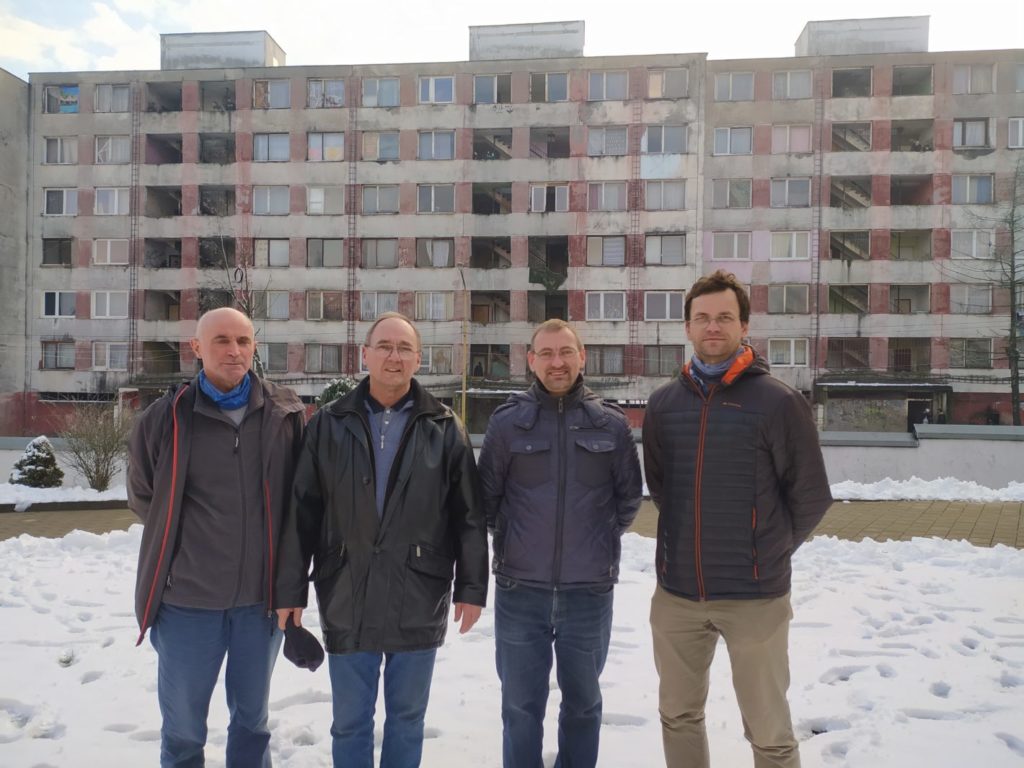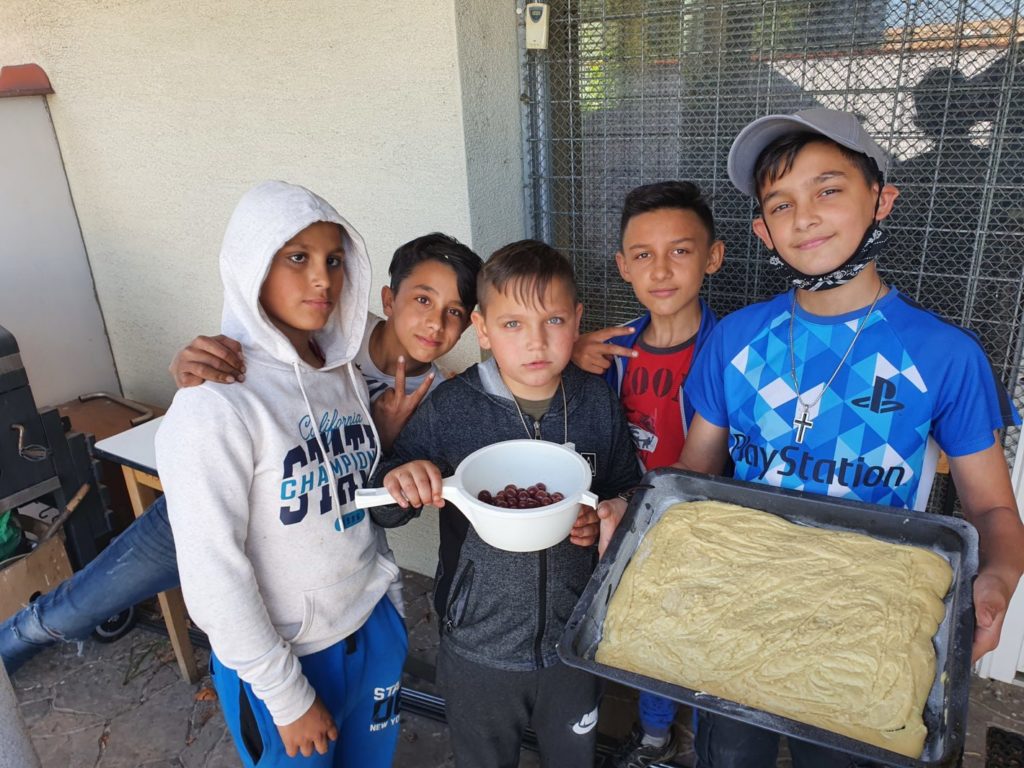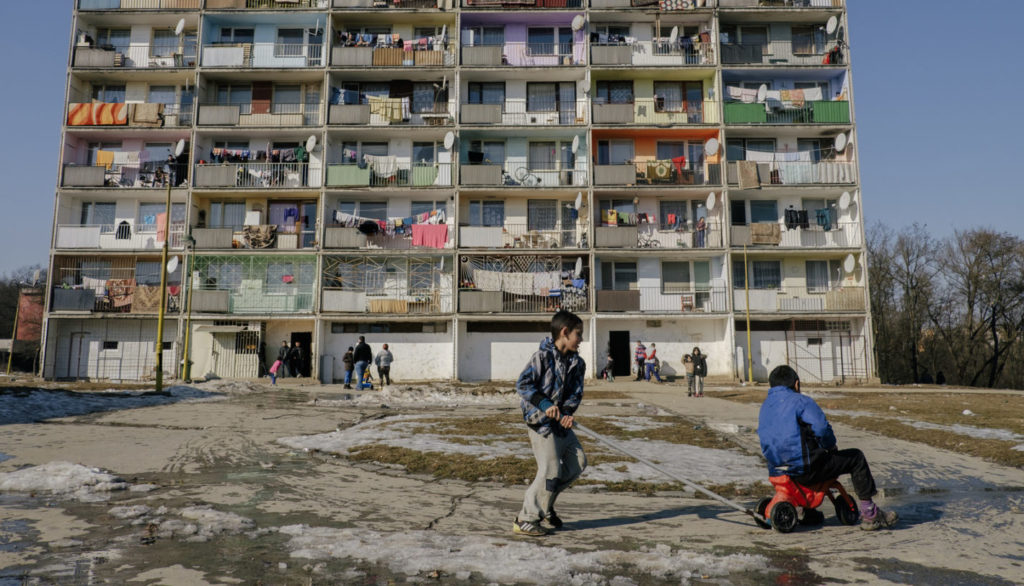Peter Žatkuľák is a Catholic priest. He is 40 years old and has been a Don Bosco Salesian for 21 years. When the pastoral care of Luník IX was entrusted to his religious community in 2008, he did not hesitate to accept the challenge, together with his congregational brother Peter Beshenyei. Thus he began to write a new chapter of his life. Despite the fact that the pastoral conditions in the district, where the vast majority of the population belongs to the Roma (Gypsy) minority, are not easy, and after a break in a Salesian institution in Žilina, Peter returned to Luník IX where he has remained ever since. Today he is responsible for the pastoral care of the Gypsies, together with three other Salesians.
This is how he explains his work, in this interview for Omnes.
Peter, what is Luník IX?
Luník IX is an urban ghetto, with its own rules. And it is these very rules that produce the misery here. A small minority thinks that the majority should respect the tone they set: loud music until late at night, children running out of the house after dinner, burning containers, garbage on the street...
How is it possible for a ghetto to emerge in a city like Košice, which was awarded the title of European City of Culture in 2013?
Originally, Luník IX was to be an ordinary housing estate in Košice, like the other districts called Luník that exist and function normally in the city. Luník IX is even very well located. Around the year 2000 there were also Slovaks living here. But then a change occurred. The city needed to "clean up" the historic houses in the city center where the Gypsies lived, and offered them alternative social housing in the new Luník IX neighborhood. As I said, at the beginning there were also Slovaks living in the neighborhood, but after the arrival of the Gypsies they gradually began to leave.
When we arrived in 2008, there were about 8,000 people, and now there are 4,300 people. Those who wanted to leave and could leave, left. On the one hand, we are happy for the people who have made it, but on the other hand, it means that the overall situation is getting worse and worse.
How do you perceive the relationship between our society and the situation of the Roma community?
Luník IX is a mirror of society. It reflects us whether or not we allow people with problems to sink deeper and deeper into even bigger problems, or whether we give them a helping hand. Or whether we give them everything for free and do not make them stronger so that they can provide themselves with what they need.
Do you think Slovakia is really interested in Roma integration into society?
We still do not accept them. But there are also communities where they are accepted. It's like a round trip. I wouldn't say that Gypsies are a problem or that they are not inserted. It is our common problem. Of the Gypsies and of the whites. We are not open to accept someone different. But most of the Gypsies in Slovakia are integrated; we are talking about a minority of Gypsies.

What did you think when you heard that Pope Francis was coming to Luník IX?
That it is an excellent choice. We are aware that we do not know how to do pastoral work with the Gypsies. For more than 30 years the Catholic Church in Slovakia has been working among the Gypsies, but we have not seen great fruits. We see individual Gypsies, tens or hundreds of people who have accepted the faith. But it is not something massive. Francis communicates this: it is about meeting these people, each one of them personally. To give them your smile. If we do not befriend them, the Gypsies will not accept the faith.
You mentioned that some gypsies manage to stand up and others accept the faith. What is it that makes some of them convert?
All of the gypsies who have converted and managed to get ahead have had someone in their life who was worthwhile, someone who gave them a sense of dignity, someone with whom they formed a long-term relationship. These people grew. The personal relationship, the friendship, is key. If I don't give to myself, I won't be able to give to my God either. Unless I win them over as a person, unless I become their friend, there is no point in talking to them about faith.
How do the Gypsies perceive the Pope's gesture of going to visit them?
With the arrival of Francis, people are more open. He comes to create personal relationships, and we have to continue with this openness. After the visit, we will be Pope Francis to them. This is a powerful thing.
Do you think the Pope's visit is an opportunity for change?
As I mentioned before, in Lunik IX the starting point is that the minority dictates the rules to the majority, and pulls it down. The majority has had enough of that. Now, before the Pope's visit, it is felt that those who are good, but before were afraid to express themselves, are starting to act, to express themselves outwardly. For example, they are working to fix the exteriors and similar things.
One of the Pope's themes is the periphery. You have personal experience in the periphery. What is it about?
The periphery alludes to inner self-acceptance, to self-confidence.
What about poverty?
Poverty is not only a question of money. Sometimes I ask the children in Lunik IX: why don't you have shoes, ask your parents for them; because I know that if a child asks for shoes, he gets them. The problem is somewhere else. You have to want them.
The greatest poverty is the poverty of relationships. Children suffer abuse and neglect. At home we hear shouting and no talking. Often they learn to talk to us or at school.
At the beginning we tried to help the Gypsies more from the material point of view as well. But then we realized that we didn't have the means for that. We set priorities. Our priority is not material help. We are mainly interested in spiritual help. Material help may be there, but it is not the main reason why I am in the Church.










